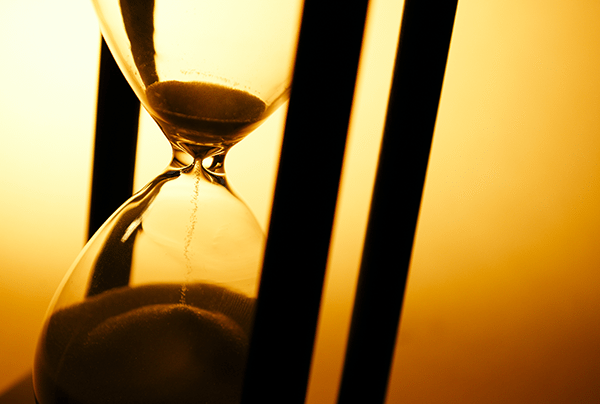
With no author to credit or thank, the provocative statement made its way onto the bulletin board in my father’s study in our home.
“Perhaps it was better when people checked the time by looking at hour glasses, for then they were always reminded that time runs out.”
Dad loved that. We joked that although we didn’t have an hourglass, we did have a three-minute egg timer. In fact, we had all sorts of clocks in our family.
There was the round-face clock on our family room mantle that just kept going around and around, its circle never indicating that it had an end. We had digital clocks that showed the exact time with no context of where time came from or where it was going.
Then there were the stop watches that allowed us to make time stand still, with the push of a button. That one was our favorite. Who wouldn’t like to stop time on occasion? As my empty nest reminds me:
It. Goes. Too. Fast.
Time is a tricky gift; it moves no matter how we measure it.
People are always urging us to “save time.” Time-saving gadgets generate millions of dollars on TV programs with their advertising.
But they never tell us where we can store our saved time. Where do we bank it? What dividends come from it? Can we check our balance online?
And then there’s Daylight Savings Time? Does it really “save” daylight or time? Actually, it merely exchanges time. It takes the first hour of sunrise and moves it to the last hour of sunlight.
But what has it saved?
In the spring, we lose an hour of sleep and in return get an hour of sunlight. In the fall, we get it back.
Time is a precious possession. We cannot save it, yet we can waste it. The real question is what do we do with the time we have?
My parents approached that question in two different ways. Dad was the master scheduler. He authored and executed his famous mantra, “what’s planned is possible” daily. He blocked out time during the summer to plan for a year’s worth of sermons. Saturday was marked off as Family Day on his calendar. Vacations were scheduled a year in advance.
Mom, on the other hand, focused on energy management, protecting what she called her “buckets of energy.” She was quick to evaluate the task’s requirement. If worthy, she would then parcel it out according to the best time of day for her energy level.
Mornings were always best.
Both cherished time. They knew, as Shakespeare reminds us, “We strut and fret our hour upon the stage and then are no more.”
Time just IS, whether measured by sand trickling through a glass or running circles on a clock. We may not be able to control time, but we can arrange ourselves – our schedules or our energy – to make the most of that hour upon the stage.
The Herald-Dispatch November 1, 2015
Sign Up Here, if you’d like to receive Thoughtful Thursdays via email.
Follow Me!